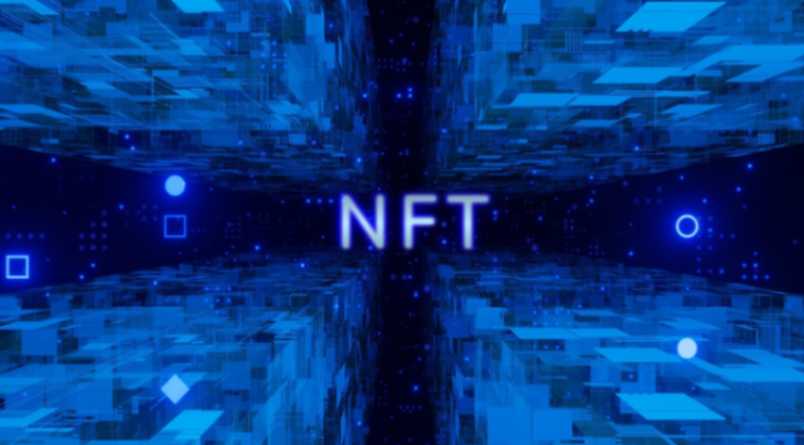In today’s digital age, the concept of identity has evolved far beyond the traditional notions of name, birthdate, and nationality. We now navigate multiple identities across various platforms, each requiring different forms of verification, authentication, and representation. Amidst this complexity, the concept of “Iversær” has emerged, a term that encapsulates the intricate and multifaceted nature of modern digital identity. This article explores the significance of Iversær, its impact on our online interactions, and how it shapes the way we manage and protect our digital selves.
Understanding Iversær: The Modern Digital Identity
Iversær is a term derived from a blend of “identity” and “versatile,” reflecting the fluid and adaptable nature of identity in the digital world. Unlike traditional identity, which is often static and singular, Iversær represents the multiple, overlapping identities that individuals create and maintain online. These identities can vary depending on the platform, context, and purpose, making digital identity a complex and dynamic phenomenon.
The Many Faces of Iversær
In the digital realm, individuals often juggle various personas, each serving a different function. For example, a person might maintain a professional identity on LinkedIn, where they present their career achievements and skills. At the same time, they might have a more casual and personal identity on social media platforms like Instagram or Facebook, where they share aspects of their personal life and interests. Additionally, individuals may adopt anonymous or pseudonymous identities in online forums, gaming platforms, or comment sections, allowing them to express opinions or engage in activities without linking them to their real-world identity.
The concept of Iversær acknowledges that these different identities are not isolated from one another. Instead, they are interconnected and influence each other, creating a web of digital identities that together form a person’s overall online presence.
The Fluidity of Identity
One of the defining features of Iversær is its fluidity. Unlike traditional identity, which is often tied to fixed attributes such as name, gender, and nationality, digital identity is more flexible. Individuals can modify their online personas to reflect changes in their life circumstances, interests, or values. This adaptability allows people to navigate different social contexts and present themselves in ways that align with their current goals or needs.
For instance, a person might change their social media profiles to reflect a new career path, or they might adopt a new online alias to participate in a different community. The fluidity of Iversær enables individuals to experiment with different aspects of their identity, explore new facets of themselves, and interact with diverse groups of people.
The Implications of Iversær for Digital Security and Privacy
While the concept of Iversær offers individuals greater flexibility and control over their online identities, it also introduces new challenges related to digital security and privacy. Managing multiple identities across various platforms can increase the risk of identity theft, data breaches, and other forms of cybercrime. Furthermore, the interconnected nature of digital identities means that a security breach in one area can have far-reaching consequences across other aspects of a person’s online presence.
Protecting Digital Identity
Given the complexities of Iversær, protecting digital identity requires a multifaceted approach. One of the key strategies is to use strong, unique passwords for each online account and to enable two-factor authentication (2FA) wherever possible. This adds an extra layer of security, making it more difficult for unauthorized users to gain access to personal information.
Another important aspect of digital identity protection is being mindful of the information shared online. With the increasing prevalence of social engineering attacks, where cybercriminals manipulate individuals into revealing sensitive information, it’s crucial to limit the amount of personal data shared on public platforms. Being selective about what information is linked to different digital identities can help mitigate the risks associated with identity theft and fraud.
The Role of Digital Platforms
Digital platforms also play a significant role in safeguarding Iversær. Companies that manage online identities must prioritize user privacy and security by implementing robust data protection measures and ensuring transparency in their data collection practices. Additionally, platforms should provide users with tools to manage their digital identities effectively, such as privacy settings, account recovery options, and alerts for suspicious activity.
Furthermore, as digital identity becomes more complex, there is a growing need for platforms to support interoperability between different digital identities. This means allowing users to easily manage and switch between their various online personas while maintaining security and privacy across all accounts. By enabling seamless transitions between identities, platforms can help users navigate the complexities of Iversær more effectively.
Iversær and the Future of Digital Identity
As we move further into the digital age, the concept of Iversær is likely to become increasingly important. The rise of decentralized technologies, such as blockchain, and the growing interest in the metaverse are reshaping how we think about identity and ownership in the digital realm. These developments have the potential to give individuals even greater control over their digital identities, allowing them to create, manage, and protect their online personas in new and innovative ways.
Decentralized Identity Solutions
One of the most promising developments in the realm of digital identity is the emergence of decentralized identity solutions. Unlike traditional identity systems, which rely on centralized authorities to verify and manage identities, decentralized identity systems allow individuals to control their own identity data. Using blockchain technology, individuals can create self-sovereign identities (SSI) that are not tied to any single platform or service provider. This approach gives users greater privacy and security, as they can decide who has access to their identity data and under what conditions.
The Metaverse and Virtual Identity
The concept of Iversær is also highly relevant in the context of the metaverse—a collective virtual shared space where users can interact with each other and digital environments in real-time. In the metaverse, individuals can create and manage multiple virtual identities, each with its own set of attributes, appearances, and behaviors. These virtual identities can be used for various purposes, from socializing and gaming to working and shopping.
As the metaverse continues to evolve, the need for secure and flexible identity management solutions will become increasingly critical. Users will need to navigate between different virtual worlds and identities while maintaining control over their personal information and ensuring their privacy is protected. The concept of Iversær provides a framework for understanding and addressing these challenges as we move towards a more immersive and interconnected digital future.
Conclusion
Iversær represents the complex, multifaceted nature of digital identity in the modern world. As individuals create and manage multiple online personas, they must navigate a landscape that is both empowering and fraught with challenges. The concept of Iversær highlights the need for robust digital security measures, mindful information sharing, and the development of new technologies that give users greater control over their digital identities.
As we look to the future, the principles of Iversær will be essential in shaping how we interact with technology and each other in the digital realm. Whether through decentralized identity solutions, the metaverse, or new innovations yet to come, understanding and embracing Iversær will be key to navigating the complexities of modern digital identity. Read More About



Your article helped me a lot, is there any more related content? Thanks!
Can you be more specific about the content of your article? After reading it, I still have some doubts. Hope you can help me. https://accounts.binance.com/ur/register?ref=WTOZ531Y